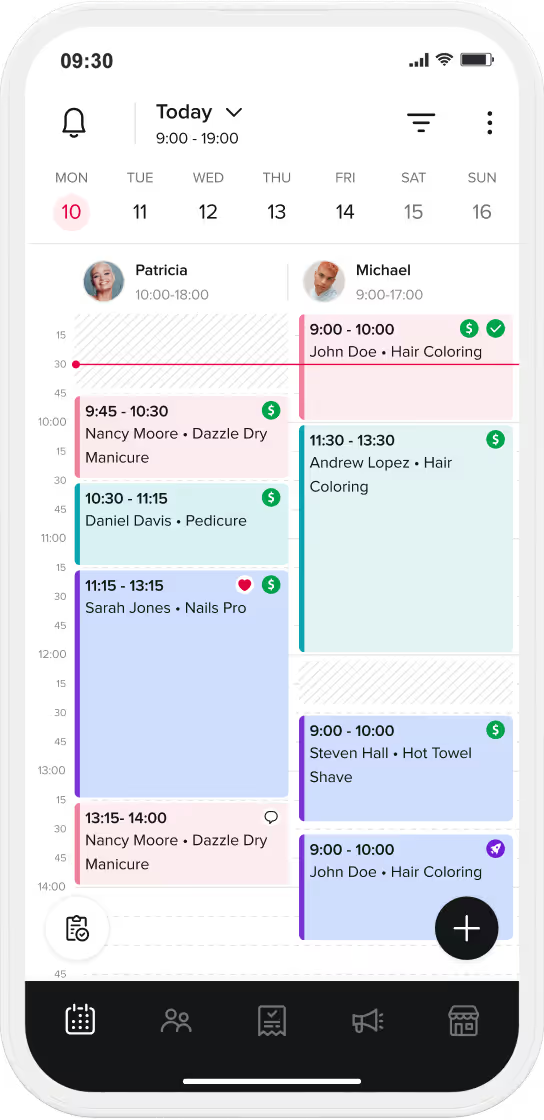

Throughout history, braids and locs have been more than just hairstyles in the Black community—they are a cultural statement, a symbol of identity, and a way to honor heritage. These unique and beautiful hairstyles have long represented resilience, creativity, and self-expression. What was once a practical means of styling hair has now become a global beauty movement, embraced by people across cultures and industries. This week, we highlight the voices of braiders and locticians who are shaping the industry and preserving the rich history of these styles.

Tiona Russell, known as Tisa Braids, is a licensed natural hairstylist specializing in braids and twists. She recognizes the deep cultural significance of braiding and its connection to history.
"Braids have been documented in the hieroglyphics of ancient Egypt since 3000 BCE. They have evolved by blending different techniques and showcasing innovative craftsmanship. In the Black community, braids represent comfort and convenience, and I truly value being part of providing that security for my clients."
Tisa ensures her clients, especially those working in corporate settings, understand that braids and natural styles are not just fashion statements—they are their birthright.
"Protective styles can also be professional, and I make sure my clients know that."
Beyond styling, Tisa values education. She overcame early challenges in working with looser curl patterns by training herself to adjust her grip and improve her technique. Her advice to new braiders is simple yet powerful:
"Learn as many techniques as possible. It helps with versatility and professionalism, ensuring you attract the clientele you deserve."
Favorite Black-Owned Products & Businesses:
.png)
As a hairstylist in Central Florida, Karin Rutherford has witnessed the transformation of Black hair acceptance over the years.
"The shift began in the late 1990s and early 2000s, when natural hair started making its way into the mainstream. Celebrities like Jill Scott, India Arie, and Erykah Badu inspired many to love their natural texture. Now, protective styles like braids and locs are more embraced than ever."
Karin emphasizes that styling hair goes beyond aesthetics—it’s about cultural connection.
"When a client sits in my chair, we discuss their hairstory—their roots, desires, and hair journey. This hairstory is a direct link to their ancestors and culture, and it helps create a personalized care regimen."
Locs, once solely associated with Rastafarian culture, have evolved into a style embraced by artists, professionals, and creatives alike. Karin believes this transformation is here to stay.
"Artists like Halle and Chlöe Bailey have taken locs to new heights in music and film, proving that they are not just a trend, but a lasting symbol of self-expression."

For Britne Cooper, locs are more than just a hairstyle—they hold energy, history, and deep personal meaning.
"Locs date back to the time of slavery, when our ancestors didn’t have the necessary tools to care for their hair. Europeans called them ‘dreadlocks,’ but over time, they became a powerful form of self-expression and a way for us to stand firm in our heritage."
Britne educates her clients on how locs can hold energy, whether through interactions, environments, or personal experiences.
"When clients feel overwhelmed, I offer steam treatments and scalp massages to help release pent-up energy. Some even cut their locs to let go of past traumas—there is so much power in this style."
One of her biggest challenges has been evolving with the industry.
"Locs have changed so much over time. I took advanced courses beyond cosmetology school to master different techniques—crocheting, interlocking, palm rolling, extensions, repairs, color correction—you name it. Staying teachable is key to creating magic for clients."
Braids and locs are more than trends—they are rooted in heritage, identity, and empowerment. The hairstylists and locticians featured here are not only preserving these traditions but also pushing them forward with innovation and education. As protective styles continue to gain mainstream recognition, they remain a vital part of Black self-expression, creativity, and cultural pride.
At Booksy, we celebrate these professionals and their dedication to honoring and evolving Black hair traditions. Their work is a testament to the beauty, versatility, and resilience of Black hair. Whether through education, artistry, or advocacy, they continue to shape the future of hairstyling—one braid, twist, and loc at a time.

